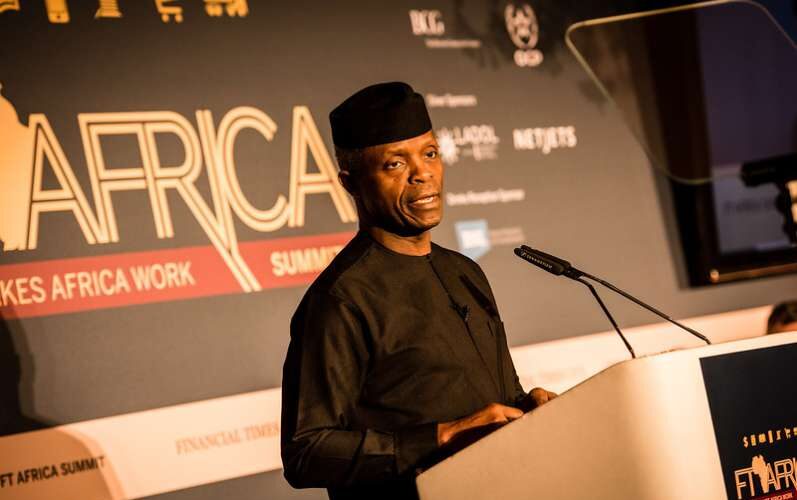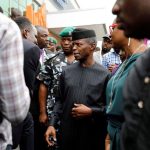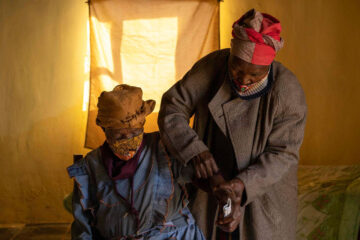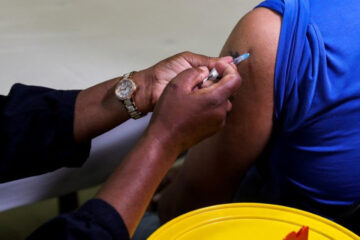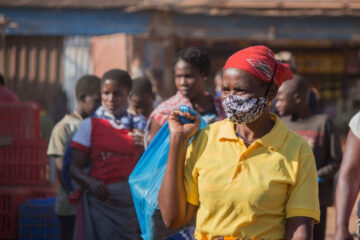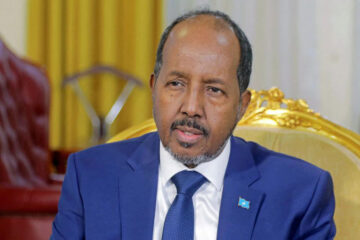CECILIA RUSSELL
Nigerian Vice President, Professor Yemi Osinbajo quipped that Covid-19 meant that the Law Students Association of Nigeria’s virtual town hall meeting was able to attract top speakers – most would not have participated if they had to travel.
That, however, was his only light-hearted assessment of the pandemic and its effects on Nigeria.
Osinbajo painted a bleak picture as Nigeria faces both an economic and a health crisis along with the rest of the world.
“There are many who say nothing like this has ever happened to the world,” he said.
The Nigerian government had set up an inter-ministerial team on how to react to a crisis which had led to plummeting foreign exchange earnings, a 40% loss in revenue and a shrinking GDP which could end up at anywhere between minus 4.4 to 8.9%.
However, Osinbajo noted that where the needle will eventually fall depends on how the country responds to the crisis. He quoted John F Kennedy comment that the word ‘crisis’ in Chinese has two components – danger and opportunity.
“I’m told that linguistically this may not be completely true, but there is a valuable lesson here for what our attitude ought to be in times of crisis.”
Everybody is searching for answers, he said.
“People are literally scrambling for answers, even in the most developed economies of the world.”
The inter-ministerial team, of which he was the chairperson, drew up an economic sustainability plan aimed at designing strategies to save jobs and create new opportunities. These plans would, he said, be focused on mass housing and mass agriculture with a strong focus on using local resources and Innovation. Nigeria with its population of 200 million people needed solutions on a grand scale, and with technology and Innovation perhaps he suggested that old problems, like Nigeria’s continuing electricity crisis, could be resolved with solar electricity, delivered by private enterprise.
Speaking to young lawyers, he noted it was time for them to change the way they tackled their careers. Lawyers in the past were more or less legal technicians. In the last few months, Nigeria had witnessed massive changes – now there were virtual court proceedings, law firms working from home. Covid-19 had created such enormous changes that the successful lawyer at the centre of it was different from the ones of just six months ago.
“Today the lawyer must be a multidisciplinary, multitasking, must be a digitally strong man or women of affairs … He must be the person capable of understanding the broad dimensions of everything,” Osinbajo said.
“Innovation itself is a mindset, you know, and, this is the only mindset that will get us out of the crisis. Especially get us out of it in a manner that puts us ahead.
Other speakers at the forum contributed to the debate on what was required to ensure that Nigeria succeeded.
RootsTV chairperson Dumebi Kachikwu also painted a bleak picture of corruption, insecurity caused by ISWAP terrorists, kidnappings and banditry were rife – and now Covid-19 was thrown into the mix.
He said not even the country’s oil was its saviour and Nigeria is better known as an oil-exporting country than an oil-producing country.
However, wasting energy on bemoaning the state of the country was a waste.
However, he admonished people for wasting their data on insults and jibes. He said people should look at what they can do from home, find opportunities online and grow small business organically.
Kachikwu, however, did have a few sharp words for President Muhammadu Buhari’s administration. “It was time to build a country on meritocracy and not on tribalism and nepotism,” he said.
The country needed to create an environment where its doctors stayed in the country; where it was safe to farm without fear of bandits and where every home had fibre delivered internet, Kachikwu said, without a hint of irony because it was internet instability that robbed the town hall from several of its planned speakers.

